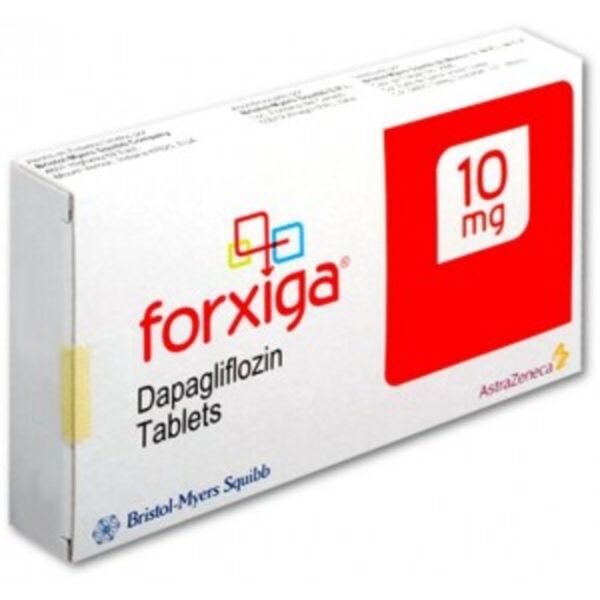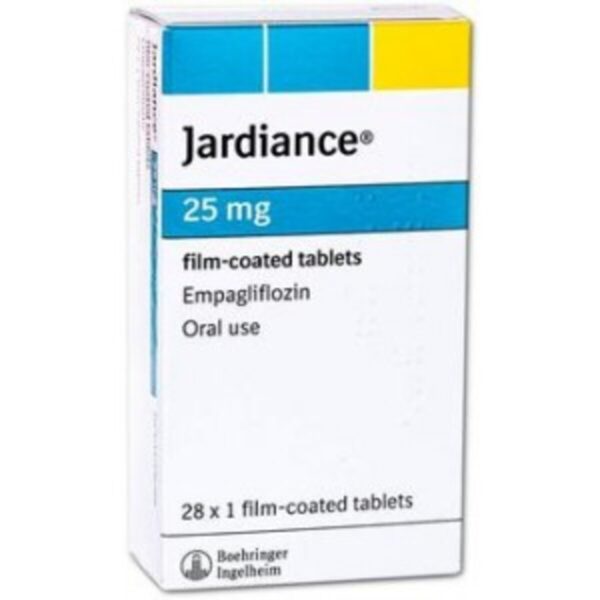- Gliclazide 40mg Tablets
- Gliclazide 80mg Tablets
- Gliclazide 160mg Tablets
- Description
- Additional Information
- Brand
- How To Use
- Product Details
- Side Effects
- Ingredients
- How to Store
- Patient Information leaflet
- Reviews (1)
- Questions & Answers
Gliclazide Tablets, 28 Tablets
Introducing Gliclazide Tablets – Your Reliable Partner in Managing Diabetes
Are you looking for an effective solution to control blood sugar levels in non-insulin dependent diabetes? Look no further! Gliclazide Tablets, containing the active substance gliclazide, belong to the esteemed group of medicines known as sulfonylureas. This oral hypoglycaemic medicine is designed to support adults in maintaining optimal blood sugar levels when traditional methods such as diet, physical exercise, and weight loss alone are not sufficient.
Key Features:
- Three Strengths, Tailored for Your Needs:
- Gliclazide 40mg Tablets
- Gliclazide 80mg Tablets
- Gliclazide 160mg Tablets
Choose the strength that aligns with your unique requirements, providing you with flexibility and personalized diabetes management.
- Comprehensive Diabetes Care: Gliclazide Tablets are not only effective for non-insulin dependent diabetes but also serve as a viable option for treating type 2 diabetes in special situations. If your cat or dog responds well to the medication or if you prefer an alternative to needles, Gliclazide Tablets can be a valuable addition to your diabetes management routine. Always follow your veterinarian’s directions for pet care.
- Convenience and Comfort: With Gliclazide Tablets, experience the convenience of an oral medication that fits seamlessly into your daily routine. Say goodbye to the hassle of needles and embrace a more comfortable approach to managing diabetes.
- Trusted and Proven: Gliclazide is a trusted sulfonylurea with a proven track record in effectively lowering blood sugar levels. Put your trust in a medication that has been a reliable choice for many in their diabetes management journey.
Take charge of your diabetes management with Gliclazide Tablets. Choose the strength that suits you best, and experience the freedom and convenience of an oral hypoglycaemic medicine. Ensure to consult with your healthcare provider or veterinarian for personalized guidance on usage and dosage. Order Gliclazide Tablets today and take a step towards a healthier and more controlled lifestyle.
Gliclazide Tablets Reviews
After using Gliclazide Tablets, it’s helpful to let others know about your experience. Reviews of an item help other users know that medicines received have helped the condition it is claimed for, how well the treatment worked or any issues to be aware of. We invite our users to leave a review of both their treatment and of the service provided. Click on the reviews tab to see if there has been feedback on this item.
What is the price of Gliclazide Tablets?
The price of Gliclazide Tablets starts from £4.00
Where can you buy Gliclazide Tablets?
You can buy Gliclazide Tablets at Dock Pharmacy Essex UK, UK Online Pharmacy.
Can you buy Gliclazide Tablets Over the counter?
Gliclazide Tablets is not available to buy over the counter. You need a prescription to buy Gliclazide Tablets from a pharmacy. You can find more information about how to obtain the medication here:
| Brand | |
|---|---|
| Strength | 40mg Tablets, 80mg Tablets, 160mg Tablets |
Brand
Diamicron
How To Use
How to take Gliclazide tablets
Always take this medicine exactly as your doctor, pharmacist or nurse has told you.
Check with your doctor, pharmacist or nurse if you are not sure.
The recommended dose is from 40mg to 320mg.
This depends on the response to treatment. When the total daily dose exceeds one tablet, it should be divided into two equal doses taken morning and evening.
Change in external factors (e.g. weight reduction, change in lifestyle, stress) or improvements in the blood sugar control may require a change of gliclazide doses
Product Details
Product Information
What you need to know before you take Gliclazide tablets
Do not take Gliclazide tablets • If you are allergic to gliclazide or any of the other ingredients of Gliclazide tablets (listed in section 6), to other medicines of the same group (sulfonylureas), to other related medicines (hypoglycaemic sulfonamides) • If you have insulin-dependent diabetes (type 1) • If you have ketone bodies and sugar in your urine (this may mean you have keto-acidosis), a diabetic pre-coma and coma • If you have severe kidney or liver disease • If you are taking miconazole (a treatment for fungal infections) (see section Other medicines and Gliclazide tablets) • If you are breast-feeding (see section Pregnancy and breastfeeding) Warnings and precautions Talk to your doctor, pharmacist or nurse before taking Gliclazide tablets. You should observe the treatment plan prescribed by your doctor to achieve proper blood sugar levels. This means, apart from regular tablet intake, you observe the dietary regimen, have physical exercise and, where necessary, reduce weight. During gliclazide treatment regular monitoring of your blood (and possibly urine) sugar level and also your glycated haemoglobin (HbA1c) is necessary. In the first few weeks of treatment the risk of having reduced blood sugar levels (hypoglycaemia) may be increased. So particularly close medical monitoring is necessary. Low blood sugar (hypoglycaemia) may occur: • If you take meals irregularly or skip meals altogether • If you are fasting • If you are malnourished • If you change your diet • If you increase your physical activity and carbohydrate intake does not match this increase • If you drink alcohol, especially in combination with skipped meals • If you take other medicines or natural remedies at the same time • If you take too high doses of gliclazide • If you suffer from particular hormone-induced disorders (functional disorders of the thyroid gland, of the pituitary gland or adrenal cortex) • If your kidney function or liver function is severely decreased If you have low blood sugar you may have the following symptoms: headache, intense hunger, nausea, vomiting, weariness, sleep disorders, restlessness, aggressiveness, poor concentration, reduced alertness and reaction time, depression, confusion, speech or visual disorders, tremor, sensory disturbances, dizziness, and helplessness. The following signs and symptoms may also occur: sweating, clammy skin, anxiety, fast or irregular heartbeat, high blood pressure, sudden strong pain in the chest that may radiate into nearby areas (angina pectoris). If blood sugar levels continue to drop you may suffer from considerable confusion (delirium), develop convulsions, lose self-control, your breathing may be shallow and your heartbeat slowed down, you may become unconscious. In most cases the symptoms of low blood sugar vanish very quickly when you consume some form of sugar, e.g. glucose tablets, sugar cubes, sweet juice, sweetened tea. You should therefore always carry some form of sugar with you (glucose tablets, sugar cubes). Remember that artificial sweeteners are not effective. Please contact your doctor or the nearest hospital if taking sugar does not help or if the symptoms recur. Symptoms of low blood sugar may be absent, less obvious or develop very slowly or you are not aware in time that your blood sugar level has dropped. This may happen if you are an elderly patient taking certain medicines (e.g. those acting on the central nervous system and beta blockers). If you are in stress-situations (e.g. accidents, surgical operations, fever etc.) your doctor may temporarily switch you to insulin therapy. Symptoms of high blood sugar (hyperglycaemia) may occur when gliclazide has not yet sufficiently reduced the blood sugar, when you have not complied with the treatment plan prescribed by your doctor, if you take St John’s Wort (Hypercium perforatum) preparations (see section Other medicine and Gliclazide tablets) or in special stress situations. These may include thirst, frequent urination, dry mouth, dry itchy skin, skin infections and reduced performance. If these symptoms occur, you must contact your doctor, pharmacist or nurse. While taking Gliclazide tablets you should: • Follow a regular diet: it is important to eat regular meals, including breakfast and never to miss or delay a meal • Take your medicine regularly (see How to take Gliclazide tablets) • Check your blood glucose regularly as recommended by your doctor Blood glucose disturbance (low blood sugar and high blood sugar) can occur when gliclazide is prescribed at the same time as medicines belonging to a class of antibiotics called fluroquinolones, especially in elderly patients. In this case, your doctor will remind you the importance of monitoring your blood glucose. Children and Adolescents Gliclazide tablets are not recommended for use in children. Other medicines and Gliclazide tablets Tell your doctor, pharmacist or nurse if you are taking, have recently taken or might take any other medicines. The blood sugar lowering effect of gliclazide may be strengthened and signs of low blood sugar levels may occur when one of the following medicines is taken: • Other medicines used to treat high blood sugar (oral antidiabetics, GLP-1 receptor inhibitors or insulin) • Antibiotics (e.g. sulfonamides, clarithromycin) • Medicines to treat high blood pressure or heart failure (beta blockers, ACE-inhibitors such as captopril or enalapril) • Medicines to treat fungal infections (miconazole, fluconazole) • Medicines to treat ulcers in the stomach or duodenum (H2 receptor antagonists) • Medicines to treat depression (monoamine oxidase inhibitors) • Painkiller or antirheumatics (phenylbutazone, ibuprofen) • Medicines containing alcohol The blood glucose lowering effect of gliclazide may be weakened and raised blood sugar levels may occur when one of the following medicines is taken: • Medicines to treat disorders of the central nervous system (chlorpromazine) • Medicines reducing inflammation (corticosteroids) • Medicines to treat asthma or used during labour (intravenous salbutamol, ritodrine and terbutaline) • Medicines to treat breast disorders, heavy menstrual bleeding and endometriosis (danazol) • St John’s Wort – Hypericum perforatum – preparations Blood glucose disturbance (low blood sugar and high blood sugar) can occur when a medicine belonging to a class of antibiotics called fluroquinolones is taken at the same time as Gliclazide tablets, especially in elderly patients. Gliclazide tablets may increase the effects of medicines which reduce blood clotting (e.g. warfarin). Consult your doctor before you start taking another medicinal product. If you go into hospital tell the medical staff you are taking Gliclazide tablets. Gliclazide tablets with food, drink and alcohol Gliclazide tablets can be taken with food and non-alcoholic drinks. Drinking alcohol is not recommended as it can alter the control of your diabetes. Pregnancy and breast-feeding Gliclazide tablets are not recommended for use during pregnancy. If you are pregnant or breast-feeding, think you may be pregnant or are planning to have a baby ask your doctor for advice before taking this medicine. You must not take Gliclazide tablets while you are breastfeeding. Driving and using machines Provided your blood glucose levels are satisfactorily controlled on Gliclazide tablets, your ability to drive or use machines should not be affected. However, if your blood glucose levels become too low, this could adversely affect your concentration, and therefore your ability to perform these tasks. Ask your doctor whether you can drive a car if you: • Have frequent episodes of low blood sugar (hypoglycaemia) • Have few or no warning signals of low blood sugar (hypoglycaemia) Gliclazide tablets contain lactose If you have been told by your doctor that you have an intolerance to some sugars, contact your doctor before taking this medicinal product.
Side Effects
Possible Side effects of Gliclazide tablets
Like all medicines this medicine can cause side effects, although not everybody gets them. Low blood sugar (hypoglycaemia) The most commonly observed side effect is low blood sugar (hypoglycaemia). For symptoms and signs see section Warnings and precautions. If left untreated these symptoms could progress to drowsiness, loss of consciousness or possibly coma. If an episode of low blood sugar is severe or prolonged, even if it is temporarily controlled by eating sugar, you should seek immediate medical attention. Other side effects Digestive disorders: abdominal pain, nausea, vomiting, indigestion, diarrhoea and constipation. These effects are reduced when Gliclazide tablets are taken with a meal as recommended. Skin disorders: skin reactions such as rash, redness, itching, hives, angioedema (rapid swelling of tissues such as eyelids, face, lips, mouth, tongue or throat that may result in breathing difficulty) have been reported. The rash may progress to widespread blistering or peeling of the skin. Exceptionally, signs of severe hypersensitivity reactions (DRESS) have been reported: initially as flu-like symptoms and a rash on the face then an extended rash with a high temperature. Blood disorders: decrease in the number of cells in the blood (e.g. platelets, red and white blood cells) which may cause paleness, prolonged bleeding, bruising, sore throat and fever. These symptoms usually stop when the treatment is discontinued. Liver disorders: there have been isolated reports of abnormal liver function which can cause yellow skin and eyes. If you get this, see your doctor immediately. The symptoms generally disappear if the drug is stopped. Your doctor will decide whether to stop your treatment. Eye disorders: your vision may be affected for a short time, especially at the start of treatment. This effect is due to changes in blood sugar levels. As for other sulfonylureas, the following adverse events have been observed: cases of severe changes in the number of blood cells and allergic inflammation of the wall of blood vessels, reduction in blood sodium (hyponatraemia), symptoms of liver impairment (e.g. jaundice) which in most cases disappeared after withdrawal of the sulfonylurea, but may lead to life threatening liver failure in isolated cases. Reporting of side effects If you get any side effects, talk to your doctor, pharmacist or nurse. This includes any possible side effects not listed in this leaflet. You can also report side effects directly via the Yellow Card Scheme at: www.mhra.gov.uk/yellowcard or search for MHRA Yellow Card in the Google Play or Apple App Store. By reporting side effects you can help provide more information on the safety of this medicine.
Ingredients
Ingredients
What Gliclazide tablets contain
The active substance is gliclazide.
Each uncoated tablet contains 160 mg of gliclazide
Each uncoated tablet contains 80 mg of gliclazide
Each uncoated tablet contains 40 mg of gliclazide
How to Store
How to store Gliclazide tablets
Keep this medicine out of the sight and reach of children. Do not use this medicine after the expiry date which is stated on the carton and the blister strip. The expiry date refers to the last day of that month. Store below 25°C. Do not throw away any medicines via wastewater or household waste. Ask your pharmacist how to throw away medicines you no longer use. These measures will help protect the environment
Patient Information leaflet
Click here for the Patient Information leaflet
Please read before using the product
1 review for Gliclazide Tablets, 28 Tablets
Only logged in customers who have purchased this product may leave a review.
Questions and answers of the customers
There are no questions yet, be the first to ask something for this product.
You Might Also Like
£5.50 – £6.95
Pioglitazone Tablets are available in 3 strengths
- Pioglitazone 15mg Tablets
- Pioglitazone 30mg Tablets
- Pioglitazone 45mg Tablets
£5.50 – £6.95
- Availability: in stock
Original price was: £54.89.£51.45Current price is: £51.45.
Original price was: £54.89.£51.45Current price is: £51.45.
- Availability: in stock
£5.50 – £23.50
Metformin Tablets – Metformin hydrochloride is available in 2 strengths
- Metformin 500mg Tablets
- Metformin 850mg Tablets
Learn More
£5.50 – £23.50
- Availability: in stock
Original price was: £55.50.£52.45Current price is: £52.45.
JARDIANCE 25MG FILM COATED TABS
Learn MoreOriginal price was: £55.50.£52.45Current price is: £52.45.
- Availability: in stock
Other Products From This Seller
Original price was: £34.99.£24.95Current price is: £24.95.
Wahl Extreme Grip Beard Trimmer Precision Grooming with Comfort Grip and Adjustable Cutting Lengths Take Control of Your Grooming with the Wahl Extreme Grip Beard Trimmer Transform your grooming routine with the Wahl Extreme Grip Beard Trimmer, designed for precision, comfort, and versatility. Whether you’re sculpting a sharp beard line, maintaining stubble, or styling longer […]
Learn MoreOriginal price was: £34.99.£24.95Current price is: £24.95.
- Availability: in stock
Original price was: £23.99.£17.95Current price is: £17.95.
WAHL Vogue Corded Hair Clipper for Men Professional Precision with Adjustable Taper Lever and High-Carbon Steel Blades Transform Your Grooming Routine with the WAHL Vogue Corded Hair Clipper for Men Elevate your grooming experience with the WAHL Vogue Corded Hair Clipper, a professional-grade grooming tool designed for men who value precision and performance. Whether you’re […]
Learn MoreOriginal price was: £23.99.£17.95Current price is: £17.95.
- Availability: in stock
Original price was: £30.00.£8.95Current price is: £8.95.
Wahl Peaky Blinders Beard Trimmer Gift Set Limited Edition Cordless Grooming Kit for Men Join the ranks of the Peaky Blinders with the Wahl Peaky Blinders Beard Trimmer Gift Set. This exclusive collaboration between Wahl and the iconic TV series offers a comprehensive grooming solution for the modern gentleman. Key Features: Rechargeable Cordless Trimmer: Equipped […]
Learn MoreOriginal price was: £30.00.£8.95Current price is: £8.95.
- Availability: in stock
Original price was: £54.63.£39.95Current price is: £39.95.
OMRON RS2 Wrist Blood Pressure Monitor Compact and Accurate BP Monitoring The OMRON RS2 Wrist Blood Pressure Monitor is a compact and user-friendly device designed for quick and accurate blood pressure and pulse rate measurements. Utilizing the oscillometric method, it ensures reliable readings with minimal user input. Key Features: Automatic Inflation: The device inflates the […]
Learn MoreOriginal price was: £54.63.£39.95Current price is: £39.95.
- Availability: in stock
Original price was: £69.99.£59.99Current price is: £59.99.
Omron M4 Intelli IT Blood Pressure Monitor Bluetooth-Enabled Upper Arm BP Monitor with Intelli Wrap Cuff The Omron M4 Intelli IT Blood Pressure Monitor is a clinically validated device designed for easy and accurate blood pressure monitoring at home. With Bluetooth connectivity, it seamlessly syncs your readings to the Omron Connect app, allowing you to […]
Learn MoreOriginal price was: £69.99.£59.99Current price is: £59.99.
- Availability: in stock
Original price was: £39.99.£33.95Current price is: £33.95.
Omron M2+ Upper Arm Blood Pressure Monitor The Omron M2+ Upper Arm Blood Pressure Monitor is a fully automatic device designed to provide quick and accurate blood pressure and pulse rate measurements. Utilizing the oscillometric method, it ensures reliable readings with minimal user input. Key Features: IntelliSense Technology: Automatically inflates the cuff to the ideal […]
Learn MoreOriginal price was: £39.99.£33.95Current price is: £33.95.
- Availability: in stock
Original price was: £19.99.£9.95Current price is: £9.95.
Ted Baker M Gift Set 30ml EDT Spray and 150ml Body Wash Experience the refined elegance of the Ted Baker M Gift Set, comprising a 30ml Eau de Toilette Spray and a 150ml Body Wash. This meticulously crafted set offers a harmonious blend of notes, encapsulating masculinity and sophistication. Ideal for gifting or personal indulgence, […]
Learn MoreOriginal price was: £19.99.£9.95Current price is: £9.95.
- Availability: in stock
Original price was: £33.00.£19.99Current price is: £19.99.
Iceberg Twice Pour Homme Eau de Toilette 125ml Gift Set Aromatic Fougère Fragrance for Men Discover the timeless elegance of Iceberg Twice Pour Homme Eau de Toilette 125ml Gift Set, a sophisticated aromatic fougère fragrance designed for the modern man. This exclusive gift set includes a 125ml Eau de Toilette, offering a complete scent experience […]
Learn MoreOriginal price was: £33.00.£19.99Current price is: £19.99.
- Availability: in stock
Original price was: £44.00.£28.95Current price is: £28.95.
Davidoff Cool Water Gift Set For Men, 2pc Gift set Dive into the invigorating essence of the ocean with the Davidoff Cool Water Gift Set for Men. This exclusive 2-piece set includes a 4.2 fl. oz. Eau de Toilette and a 2.5 fl. oz. After Shave Balm, offering a complete grooming experience that embodies freshness […]
Learn MoreOriginal price was: £44.00.£28.95Current price is: £28.95.
- Availability: in stock
Original price was: £19.95.£9.95Current price is: £9.95.
Ted Baker W Pink Gift Set 30ml EDT and 150ml Shower Gel Experience the elegance of Ted Baker W Pink Gift Set, comprising a 30ml Eau de Toilette and a 150ml Shower Gel. This exquisite set offers a harmonious blend of floral and woody notes, encapsulating femininity and sophistication. Ideal for gifting or personal indulgence, […]
Learn MoreOriginal price was: £19.95.£9.95Current price is: £9.95.
- Availability: in stock




















Mike Goldspink (verified owner) –
Post office don’t deliver in a safe manner, to lazy
Julie Cutbush –
Dear Mike, we apologise for any inconvenience caused.